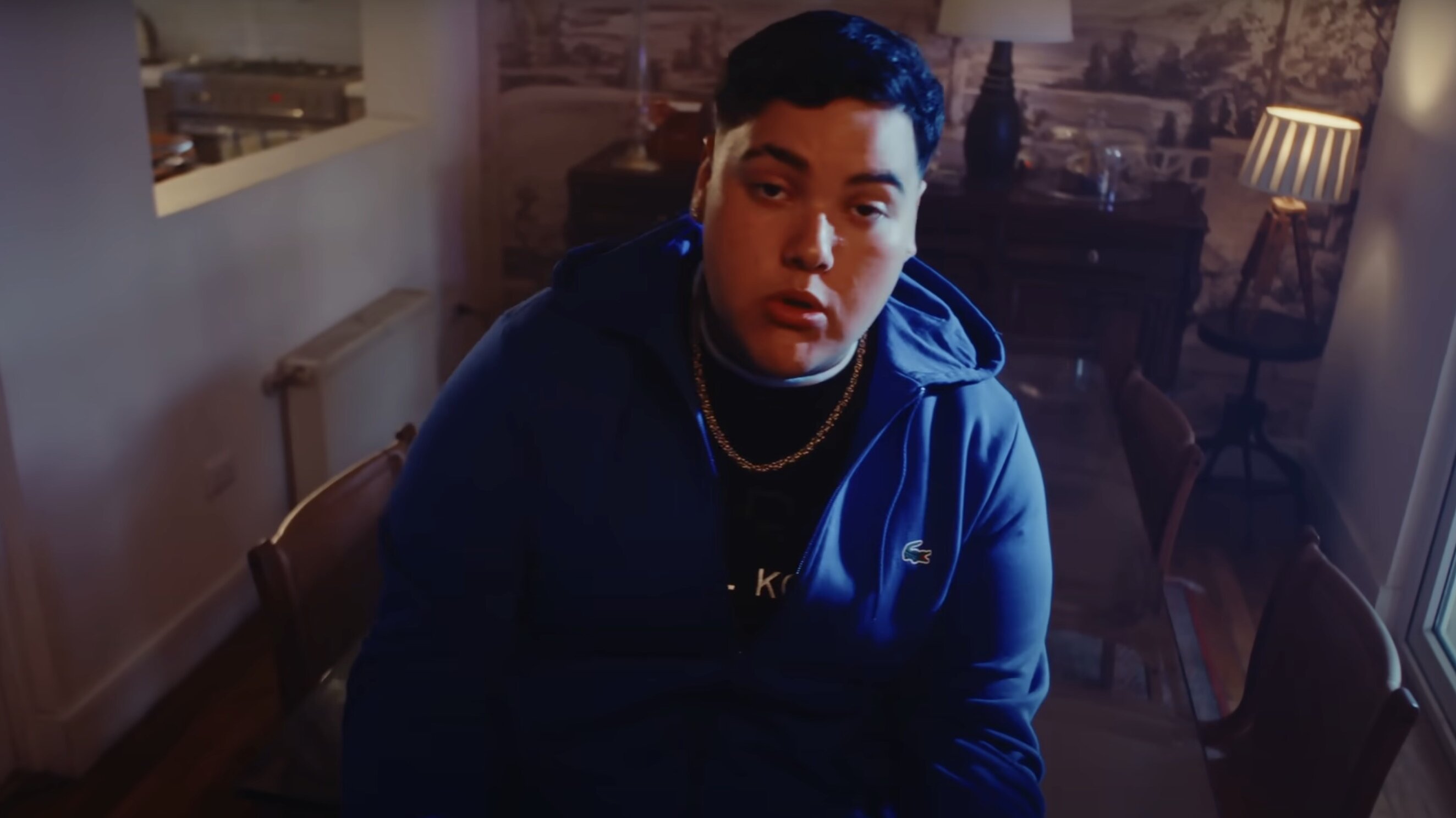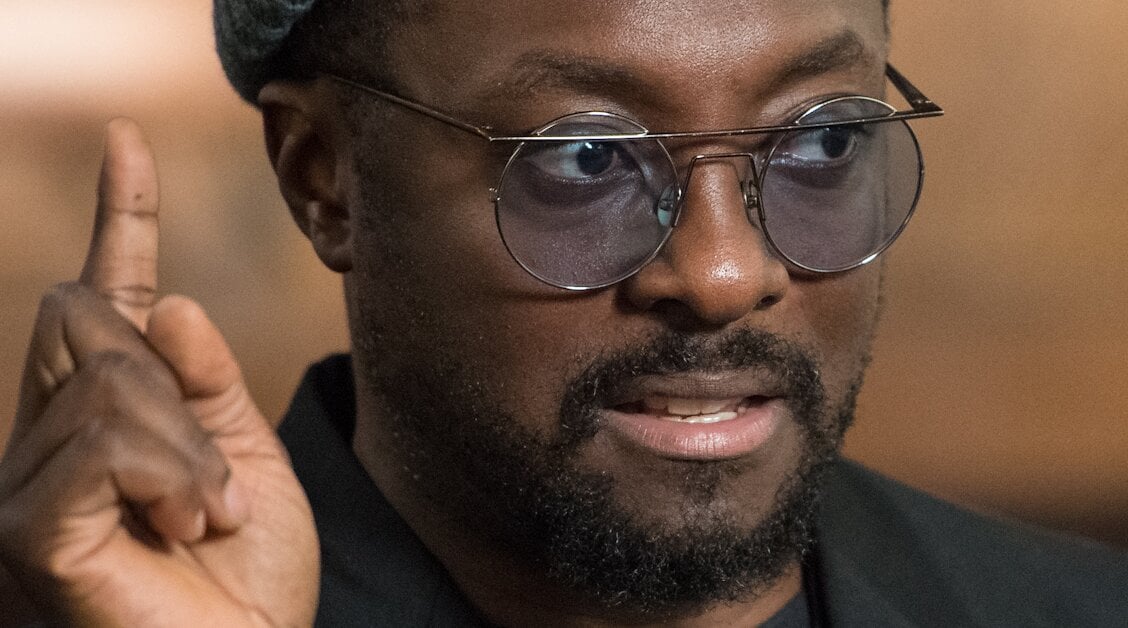- Ruiz - The Manager's Playbook
- Posts
- How One Woman SOLD a pitch to Spielberg at 21!
How One Woman SOLD a pitch to Spielberg at 21!

Welcome to The Manager’s Playbook, my personal newsletter where I share weekly insights for aspiring artists, emerging music managers and executives on how to navigate the music industry, by Ruiz.
Note: For any links that are behind a paywall, copy the URL and paste it into this paywall ladder to read the article without any issues.
Ruiz Note:
And That’s Just The Tip Of The Iceberg!
If you aren’t familiar or did not read last week’s newsletter (shame on you) then take in Episode 008 of ‘The Manager’s Playbook’ Podcast ft Shara Senderoff OUT NOW!
Shara is an absolute powerhouse in the tech and entertainment space, but you might not be familiar with her. However, if you are, then you know exactly what type of value Shara brings to the table.
This convo is a very different one from the others thus far. We deep dive into not only the music business and her many ventures in and around it, but the other disciplines that Shara operates in like film, content, Crypto, AI and much more.
Shara has worked with the best of the best of their respective domains like Scooter Braun, Mike Caren, the aforementioned Steven Spielberg plus several others.
Shara Senderoff is limitless in her approach and joy du vivre!
It was an inspiring convo for me. I hope you get value out of her wisdom. Watch it NOW.
Don’t forget to subscribe to our YouTube Channel HERE
You can also listen to ‘The Manager’s Playbook’ Podcast on Spotify, Apple, Amazon and all other platforms HERE
-Ruiz
Before we begin..
A quick shoutout to 1440 Media,
1440 Media is a fast growing newsletter that has reached out to partner with us, and now we're rallying to shine the spotlight on them.
We value any sources that provides impartial, fact based news. Click the feature below to check them out.
And for those who want to support us, each click on the “Sign Up Today!” hyperlink below in the 1440 Media feature helps us continue to keep this newsletter thriving. Thank you for your support!
We scour 100+ sources daily
Read by CEOs, scientists, business owners and more
3.5 million subscribers
STRATEGY
NICHE IS THE NEW MAINSTREAM?
This week’s strategy component comes from an article that was posted on the MIDIA blog. It speaks to Niche being mainstream, which is an interesting and thought provoking concept, and figuring out how to adapt. I initially came across this blog by Mark Mulligan’s LinkedIn Post.
The piece below was written by Hannah Kalert.
Niche is mainstream. So… what next?

Entertainment industries today are navigating two contrasting pressures. On the one side is the demand for niche personalisation: algorithms drive hyper-targeted content to just the right audiences, who identify strongly with it and form small, powerful communities, which can allow those propositions to carve out durable success. However, as this trend drives ever-smaller successes in an increasingly constrained and competitive landscape, there emerges an imperative for growth; to attain more mainstream relevance and the higher-margin revenues that come with it. Adapting to broader audiences comes with the risk of losing those original, hardcore fans. Thus, the contradictory truth: niche is the new mainstream. But how far can it go?
Spotify’s payments threshold reflects where the drive for niche has diminishing returns. The major label perspective that songs under 1000 streams are ‘trash’, yet can also be ‘undiscovered treasure’, points to this same contradiction. Having fewer than 1000 streams on a song can mean it is undiscovered; that it is a micro-niche with a dedicated (but tiny) fanbase; or that it simply is not very good. There is little way to tell (from a data perspective), and from a monetisation perspective, at the point of under 1000 streams, the distinction may not matter.
Niche is undeniably important in the algorithmic age of hyper-personalisation. However, the shuttering of Vice and Buzzfeed – the early 2010s’ iconic versions of niche content platforms – indicates that there are other factors at play that can turn niche successes into long-term declines. Thus, it is worth exploring the following questions:
Why is niche so valuable – and to whom?
How long does niche stay valuable, and why?
How should entertainment adapt to recoup the benefits of niche long term?
The value of niche
Niche is not new. In-jokes between friends, micro-cultures in school or work environments, and neighbourhood hotspots have always been around. In the past, these ‘niches’ have sometimes scaled upwards. However, it is only with the algorithmic capabilities of hyper-targeting audiences that big propositions have been able to scale down to the point of niche, too. Why is this important?
Fandom is driven by identity. When asked why fanbases and scenes are valuable to them, audiences say that these are places where they can be themselves, among communities of like-minded people. The more tailored to the individual, the more propositions can tap into this need for connection and personal reflection. Yet again, entertainment is faced with an inherent contradiction: the more personalised the recommendation, the less connection with others is possible, and the more isolating the enjoyment of that can be. Hence the downsides of music streaming, where listening becomes so individualised it becomes background noise rather than something of collective meaning.
So, being too niche is a problem. But so is being too mainstream. The more ‘successful’ a niche is (the more it grows), the more it loses what made it special in the first place. Social platforms are currently seeing a ‘death of the town square’, where collective cultural spaces become cluttered, unreflective, and uncomfortable to engage in. Even artists sometimes lament their own success, and the loss of freedom and connection that can come with growing their audience from thousands to millions. Thus, niche has value – up to a point.
The lasting value of niche…?
The inherent (if inconvenient) truth of niche is that there is no ‘one size fits all’ rule for success. Historically, every mainstream success has started out as niche, in one way or another, and today’s content proliferation has almost made being niche necessary to stand out. Yet bigger, more ‘mainstream’ successes possess a sort of cultural gravity that can make the success last longer. Without scale, what staying power do niches have?
The counterexample is that of the ‘cult classic’. Rocky Horror Picture Show, for example, has always been on the fringes of mainstream culture, as has The Room. Music genres, like Punk and Metal, offer similar case studies. Yet they are by no means small; instead, they are big enough to have subdivisions of fandom and culture within them but still small enough to maintain a valuable collective identity of ‘us’ versus ‘everyone else’.
The balancing act of niche, mainstream, and the inevitable onward march of time
To bring it back to Vice and Buzzfeed, they were the original ‘niche’ platforms of the 2010’s, offering lifestyle content tailored to edgy millennials. However, their grandiose shareholder expectations have fallen on a disappointing long-term outlook, as the algorithms on social platforms like TikTok and YouTube have taken the same cultural role. While their focus on niche content was forward-thinking, the battle that these companies lost was over platform value. Audiences wanted the content, but found easier ways to access it elsewhere, and advertisers followed. Moreover, the business model was not the right fit; niche is a good content strategy, but monetisation strategies typically rely on mass reach – splitting the winners into those platforms that act as ‘niche aggregators’, and those that can expand into midsize ‘scenes’, like the previous examples of cult classics and newer music genres, like EDM.
The inherent tension between niche and mainstream will continue to waver, but it seems that change is in the air. The pendulum that began at mainstream, and then swung to niche, may be swinging back to land somewhere in the middle…and entertainment companies should begin to take stock of where they stand, and how they can continue to succeed in the changing environment.
PAY ATTENTION
The Sabrina Carpenter Glow Up is Here
Yes, there’s been significant Disney Channel appeal. However, that can often be a difficult challenge breaking away from a children orientated tv program. Read on Hits Daily Double how Sabrina and her management team Janell Lopez Genzink, Merce Jessor and Amy Davidson at Volara and her label Island Records have built a real business set for major impact for years to come.
HALF!
“This trend was highlighted in recent months by Luminate stats showing that indies are nibbling into the majors’ streaming market share.” - Music Business Worldwide
Meta launches new song preview feature
Here’s how it works:

INDUSTRY NEWS
POSTY DOES IT AGAIN. GOES #1
With 250,000 equivalent units sold Post Malone locks in his 6th Number 1 Album on the Billboard 200 Chart. Shoutout to his managers Dre London, Austin Rosen and Bobby Greenleaf on continuing to smash it a decade in!
*Might need a paywall ladder up above to read this article 😉
Incase You Were Wondering

Some of the most lucrative Catalogue sales of all time. I say some because I know for a fact a few are missing that are in the 100m-150m range.
When will.i.am Speaks, It’s Worth Listening
RAiDio.FYI is essentially reimagining the radio format with its new platform to introduce intelligent prompts and real time communication with the app.
Demonstration HERE
WHAT WE’RE WATCHING
CHECK THIS OUT..
Music Industry Job Openings
Have a look at ROSTR’s job board for paid work in the industry.
Stay hungry. Stay open.
WRAPPING UP..
If you found today's read enjoyable, please consider sharing it with a friend. Crafting these newsletters consumes hours each week, so your support in sharing with peers means a lot.
And if you have any thoughts to share, feel free to hit reply—I'd love to hear your feedback.
Bio
I’m Mauricio Ruiz, the Founder/CEO of 8 Til Faint, an Artist Management company with over 5 billion audio streams worldwide. Our past and current clients include Grammy nominated, Juno Award winning and nominated singer/songwriter Jessie Reyez, Skratch Bastid and more. I am also the Co-Founder of Mad Ruk Entertainment, a content agency with over 3 billion long form video streams worldwide. Our client list includes The Weeknd, Eminem, and Celine Dion, along with renowned brands like Nike, Pernod Ricard, Canon, and the NBA. Most recently I am the Founder of ‘The Manager’s Playbook’
Follow ‘The Manager’s Playbook’ Podcast on Youtube
Follow me on IG @mauroisruiz
Follow me on LinkedIn








